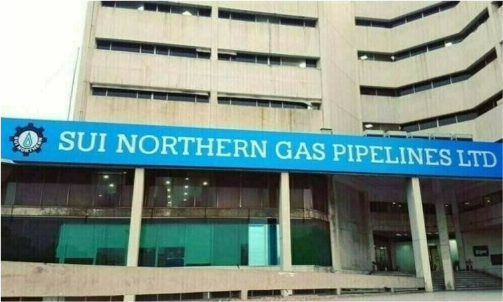Connor Albrecht is in the Oil & Gas Engineering Division at Texas Railroad Commission in Austin. Previously heworked on the engineering teams with Halliburton HAL -1.6% in the Eagle Ford, Parsley Energy in the Permian, and at Ameredev in the Delaware basin of New Mexico. He graduated from Texas Tech in 2017 with a degree in Mechanical Engineering. Connor is unafraid to spell out the rewards as well as the difficulties of changing jobs within the oil and gas industry. He spoke about his career path, personal prospects, and where he thinks the industry is headed.
Q. What is the market right now for petroleum engineers (PE)?
The market is competitive. Particularly difficult if you aren’t willing to relocate, transition to field-based or an analyst position, or if you are a new college graduate without much experience, or a seasoned veteran that doesn’t want to take a demotion/pay cut. Job offers and opportunities in the United States are few and far between.
The majority of oil and gas (O&G) open job opportunities in the United States are listed in Midland, TX (Permian Basin), San Antonio, TX (Eagle Ford), or Houston, TX. Many of my colleagues and classmates have switched industries completely or have transitioned to O&G/Energy Investment Groups with JP Morgan, Goldman Sachs GS -1.3%, Blackstone BX -1%, or smaller private equity investment firms.
Q. You started as a PE but switched to an ME (mechanical engineer). Why? And how did you overcome the challenges of switching?
The world is constantly changing, new technology is being created daily, and the job market is changing along with it. The most well-rounded engineering degree that you can obtain to prepare for the future and work across multiple industries is a Mechanical Engineering degree. Whether you are wanting to work in the O&G industry (Chevron CVX -0.6%, Exxon, Shell), Technology boom (Amazon AMZN -0.7%, Tesla TSLA +0.3%, Facebook), Aerospace (NASA, SpaceX), or on Wall Street (Goldman Sachs, JP Morgan), you can do it all with a Mechanical Engineering degree.MORE FOR YOUExxon-Led Carbon Capture Project Is Key To Sustained U.S. Economic GrowthWill The Copper Deficit Derail The Renewable Revolution?The Obvious Delusion Of ‘No More Natural Gas’
When I switched degrees Junior year, I had to accept that I would need to stay in college an extra year in addition to attending summer school. I graduated with ~170 credit hours with mostly all engineering coursework and only lacked 40 credit hours to double major in Petroleum and Mechanical engineering. The countless college courses and credit hours were pretty extensive when I recall all of the time and hard work it took to obtain. https://buy.tinypass.com/checkout/template/cacheableShow?aid=Yj2fRrCPpu&templateId=OTXWKFJL53QM&templateVariantId=OTVLE6GMPT50T&offerId=fakeOfferId&experienceId=EXB9R3LZHUYM&iframeId=offer_f7a252e778bd586b827b-0&displayMode=inline&pianoIdUrl=https%3A%2F%2Fauth.forbes.com%2Fid%2F&widget=template
Q. What advantages might a PE major have, by staying with the PE program?
Petroleum Engineers have been known over the years to hold the highest rankings for yearly salary of all bachelor degrees. Many young professionals and college freshman tend to flock to the O&G industry early on in hopes of scoring it big upon graduation.
Despite the technological advances that renewable sources of energy can provide, the use of fossil fuels is not coming to an end nor is the future for those working in the petroleum industry.
With world energy constantly evolving and large oil companies adding renewable energies to their portfolios, Petroleum Engineers will have the expertise that will carry over to these renewable technologies such as solar systems, offshore wind farms, and carbon capture and storage.
Q. You have found several jobs, and lost some of them.
Near college graduation in December 2017, the O&G job market was difficult following the crash from $100/bbl to $50/bbl back in 2014. I believe out of the 100+ Petroleum Engineering students, only around 20% of them found O&G jobs. I was fortunate enough, with not much time left on my side to find a job before graduation.
I was hired on with the leading O&G service company in America, Halliburton. I was excited, but my career goal at the time was to work with an upstream O&G operator. During my time with Halliburton as a field engineer in the Eagle Ford I continued to search for positions with an operator.
Nearly a year went by in Halliburton’s field engineering rotation program and I was finally able to get hired with Parsley Energy’s production group. I spent 2.5 years with Parsley Energy before we were acquired by Pioneer Natural Resources PXD 0.0% in February 2021. Months prior to the acquisition date, I began searching for another O&G opportunity.
Two weeks before the acquisition I was hired on as a contractor in New Mexico working a 14/7 hitch schedule, overseeing a series of six wells that were to be completed.
Q. What did you learn about life from the job changes?
Intermittent retirement, severance packages, opportunity to find another job if you choose to do so, more time to travel, taking a step back to decide what career path you want to take long term, making new friends, working on new hobbies, and spending more time with family.
No one nearing retirement ever says, “Man, I wish I would have worked more, traveled less, and spent less time at home”. A year of paid severance gives you the ability to do this without the added stress of paying the bills.
My severance package enabled me to invest in real estate and purchase a short-term rental in downtown Austin.
I rented out my home in Austin, TX and have spent a lot of time this year in hotels, on airplanes, vacationing, couch surfing, interviewing, living out of a suitcase, etc. It has been really challenging and exhausting at times, but it was my personal choice and price to pay to leave Austin to enjoy a mini





